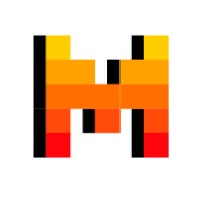The AI Battlefield: Microsoft, Musk, and the Rise of Open Source
May 23, 2025, 5:46 pm

Location: Australia, New South Wales, Concord
Employees: 51-200
Founded date: 2016
Total raised: $494M

Location: France, Ile-de-France, Paris
Employees: 11-50
Founded date: 2023
Total raised: $1.26B
In the fast-paced world of artificial intelligence, alliances shift like sand. Microsoft has thrown its weight behind Elon Musk’s Grok models, a move that could reshape the landscape of AI development. This partnership comes with risks, especially given the turbulent history between Musk and OpenAI. Meanwhile, Mistral AI is carving its own path with the launch of Devstral, a powerful open-source software engineering agent model. The clash of titans and the rise of open-source solutions signal a pivotal moment in AI.
Microsoft’s recent announcement at the Build developer conference has sent ripples through the tech community. The tech giant has integrated Musk’s Grok chatbots into its Azure AI Foundry. Developers can now harness Grok 3 and Grok 3 Mini to build applications. This partnership is a double-edged sword. On one side, it expands Microsoft’s offerings. On the other, it risks straining its relationship with OpenAI, the very organization it has heavily invested in.
Musk’s history with OpenAI is fraught with tension. After stepping down from its board, he has accused the organization of straying from its original mission. A legal battle ensued, with Musk attempting to acquire OpenAI for a staggering $97.4 billion. The board’s swift rejection of this bid underscores the deepening rift. Microsoft’s embrace of Grok could be seen as a betrayal to OpenAI, raising eyebrows and questions about loyalty in the tech arena.
Grok’s reputation is shaky at best. Recent studies reveal that it generated inaccurate news citations in 94% of cases. Such performance raises alarms about its readiness for enterprise use. In a world where accuracy is paramount, Grok’s mixed results could leave Microsoft regretting its decision. The partnership may open doors, but it also invites scrutiny.
Meanwhile, Mistral AI is taking a different approach. The French company has launched Devstral, an open-source software engineering agent model designed to run on laptops. This model is a breath of fresh air in a landscape often dominated by proprietary solutions. Devstral boasts 24 billion parameters, making it smaller and more efficient than many competitors. It’s built for the agentic era, capable of understanding context across files and navigating large codebases.
Mistral’s commitment to open-source principles is commendable. The Apache 2.0 license allows developers to modify and commercialize the model without restrictions. This move aligns with the growing demand for transparency and flexibility in AI development. Developers can run Devstral locally, ensuring privacy and control over their projects. In a world where data security is paramount, this feature is a game-changer.
The performance of Devstral is impressive. It outperforms several closed models, including GPT-4.1-mini, by a significant margin. This achievement positions Mistral as a formidable player in the coding-model ecosystem. The company’s earlier success with the Codestral series laid the groundwork for this latest innovation. Devstral represents a natural evolution, extending capabilities from simple code completions to full-agent task execution.
Mistral’s collaboration with All Hands AI to release Devstral underscores the importance of community in AI development. The model is designed to integrate seamlessly with agentic frameworks, allowing it to interact with test cases and execute multi-step tasks. This collaborative spirit is vital in an industry where innovation thrives on shared knowledge and resources.
As Microsoft and Musk navigate their complex relationship, Mistral’s approach offers a refreshing contrast. The open-source movement is gaining momentum, challenging the dominance of proprietary models. Developers are increasingly drawn to solutions that prioritize flexibility and transparency. Mistral’s Devstral is a testament to this shift, providing a powerful tool for software engineers without the constraints of traditional models.
The AI landscape is evolving rapidly. Microsoft’s partnership with Grok may yield short-term benefits, but the long-term implications remain uncertain. The potential fallout with OpenAI could overshadow any gains. In contrast, Mistral’s commitment to open-source principles positions it as a beacon of innovation. The company is not just responding to market demands; it is shaping the future of AI development.
In this new era, the battle lines are drawn. On one side, we have tech giants like Microsoft, navigating complex alliances and rivalries. On the other, emerging players like Mistral are championing open-source solutions that empower developers. The outcome of this struggle will define the future of AI.
As we look ahead, one thing is clear: the landscape of artificial intelligence is anything but static. The rise of open-source models like Devstral signals a shift towards greater accessibility and collaboration. Meanwhile, the tensions between established players like Microsoft and Musk highlight the challenges of navigating a rapidly changing environment.
In the end, the AI battlefield is marked by innovation, rivalry, and the relentless pursuit of progress. As developers and companies adapt to these changes, the question remains: who will emerge victorious in this high-stakes game? The answer lies in the balance between collaboration and competition, transparency and control. The future of AI is unfolding, and it promises to be anything but predictable.
Microsoft’s recent announcement at the Build developer conference has sent ripples through the tech community. The tech giant has integrated Musk’s Grok chatbots into its Azure AI Foundry. Developers can now harness Grok 3 and Grok 3 Mini to build applications. This partnership is a double-edged sword. On one side, it expands Microsoft’s offerings. On the other, it risks straining its relationship with OpenAI, the very organization it has heavily invested in.
Musk’s history with OpenAI is fraught with tension. After stepping down from its board, he has accused the organization of straying from its original mission. A legal battle ensued, with Musk attempting to acquire OpenAI for a staggering $97.4 billion. The board’s swift rejection of this bid underscores the deepening rift. Microsoft’s embrace of Grok could be seen as a betrayal to OpenAI, raising eyebrows and questions about loyalty in the tech arena.
Grok’s reputation is shaky at best. Recent studies reveal that it generated inaccurate news citations in 94% of cases. Such performance raises alarms about its readiness for enterprise use. In a world where accuracy is paramount, Grok’s mixed results could leave Microsoft regretting its decision. The partnership may open doors, but it also invites scrutiny.
Meanwhile, Mistral AI is taking a different approach. The French company has launched Devstral, an open-source software engineering agent model designed to run on laptops. This model is a breath of fresh air in a landscape often dominated by proprietary solutions. Devstral boasts 24 billion parameters, making it smaller and more efficient than many competitors. It’s built for the agentic era, capable of understanding context across files and navigating large codebases.
Mistral’s commitment to open-source principles is commendable. The Apache 2.0 license allows developers to modify and commercialize the model without restrictions. This move aligns with the growing demand for transparency and flexibility in AI development. Developers can run Devstral locally, ensuring privacy and control over their projects. In a world where data security is paramount, this feature is a game-changer.
The performance of Devstral is impressive. It outperforms several closed models, including GPT-4.1-mini, by a significant margin. This achievement positions Mistral as a formidable player in the coding-model ecosystem. The company’s earlier success with the Codestral series laid the groundwork for this latest innovation. Devstral represents a natural evolution, extending capabilities from simple code completions to full-agent task execution.
Mistral’s collaboration with All Hands AI to release Devstral underscores the importance of community in AI development. The model is designed to integrate seamlessly with agentic frameworks, allowing it to interact with test cases and execute multi-step tasks. This collaborative spirit is vital in an industry where innovation thrives on shared knowledge and resources.
As Microsoft and Musk navigate their complex relationship, Mistral’s approach offers a refreshing contrast. The open-source movement is gaining momentum, challenging the dominance of proprietary models. Developers are increasingly drawn to solutions that prioritize flexibility and transparency. Mistral’s Devstral is a testament to this shift, providing a powerful tool for software engineers without the constraints of traditional models.
The AI landscape is evolving rapidly. Microsoft’s partnership with Grok may yield short-term benefits, but the long-term implications remain uncertain. The potential fallout with OpenAI could overshadow any gains. In contrast, Mistral’s commitment to open-source principles positions it as a beacon of innovation. The company is not just responding to market demands; it is shaping the future of AI development.
In this new era, the battle lines are drawn. On one side, we have tech giants like Microsoft, navigating complex alliances and rivalries. On the other, emerging players like Mistral are championing open-source solutions that empower developers. The outcome of this struggle will define the future of AI.
As we look ahead, one thing is clear: the landscape of artificial intelligence is anything but static. The rise of open-source models like Devstral signals a shift towards greater accessibility and collaboration. Meanwhile, the tensions between established players like Microsoft and Musk highlight the challenges of navigating a rapidly changing environment.
In the end, the AI battlefield is marked by innovation, rivalry, and the relentless pursuit of progress. As developers and companies adapt to these changes, the question remains: who will emerge victorious in this high-stakes game? The answer lies in the balance between collaboration and competition, transparency and control. The future of AI is unfolding, and it promises to be anything but predictable.